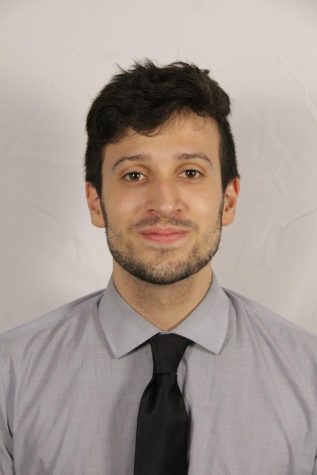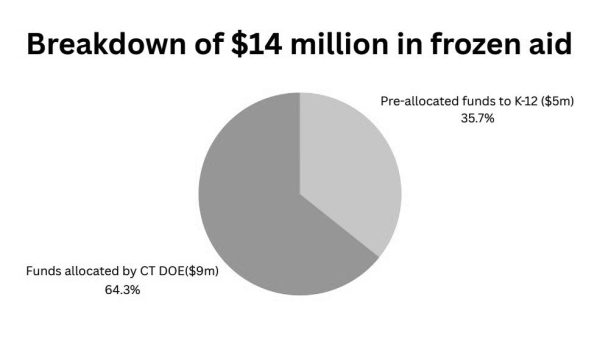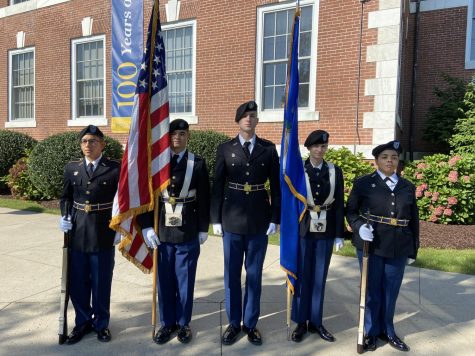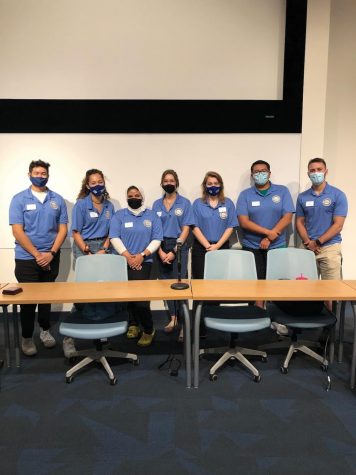Q&A: University professor talks local politics and civic engagement
Dr. Crouse
On April 25, I sat down via Zoom with University of New Haven political science Practitioner in Residence Patricia Crouse, who has an extensive background in politics — specifically in local politics and civic engagement. As her research background focuses on political participation, I sought to get some insight into voting trends among the youth. Crouse was passionate about the subject and urged students to become involved in local politics.
Q: I saw on your bio that you do have an extensive background in both public administration and public policy and that your research interests have focused on civic engagement. Would you mind speaking a little bit more about that research interest and how your interest in local government really took hold?
A: In essence, I am really interested in civic engagement in kids your age… because what we have found is that 18–29-year-olds are the least likely to register and the least likely to vote. In the last couple of elections, we have seen an increase in youth voting, but I still think we’re far behind where we need to be. You know, I’ve always had an interest—ever since I started teaching… in youth voting. My interest in local politics really didn’t start until we moved to Virginia… we had county government, and it’s a very unique system, and what I learned was that these major decisions were made at [the] county level that really impacted the cities that fell into that county, but they weren’t always the right decisions for those particular areas.
I’m kind of fascinated with local politics because it’s so different from national politics and even state politics. It’s almost more, it’s almost more volatile, but not because of party if that makes sense.
Q: That makes sense. So would you say that there has been an upward trend in involvement after the 2020 election, specifically?
A: You know what, it’s funny that you asked that because I’m curious to see what turnout rates are for local elections this year, because what I have noticed –– at least in my town — is an uptick in voter turnout, just in general — for general elections, statewide elections [and] local elections. I think a lot of people have burnout from the last four years — political burnout, and that’s not saying whether you liked Trump or not, it’s just it was a volatile four years at the national level. I have always taught that you can make the biggest difference in local politics.
Q: Do you think that social media has a large role in youth involvement?
A: When you’re talking about the younger generation, definitely. I have students who would be pointing stuff out to me on Twitter or on Facebook… even if it was wrong information, it still gets passed along and gets the younger generation engaged. And I think that that is a good thing; I think that social media is problematic in that way also. You have to be able to decipher what’s true and what’s not true, and a lot of people don’t take the time to do that.
I always talk about social media as sort of a curse and a blessing, because it definitely transfers wrong information out there, but I do think it gets the conversation started. I don’t think we should rely on it the way we do. It could go away tomorrow, and elections would be the same.
Q: For local politics, in particular, I think that a lot of students may feel that it’s not that important, or it’s not that impactful, because the focus, on the large end, is on national politics. And so, I think that a lot of students don’t put in the time to learn anything about local or state politics. What would you say to a student who feels that way and feels like it may not be worth the effort?
A: I mean, I teach it all the time; it’s absolutely worth the effort. I’ll tell students if you vote in no other election, you should vote in your local election because these are the people that pass school board budgets, these are the people that pass your town budget. This is why you have fire and police, and trash pick-up. And I am trying to convince them that you can make a difference.
The pandemic really did change a lot about politics. And particularly, I think states and local governments. The fact that almost 600,000 people are dead because of it, in my perspective, is a direct result of the failed policies of the federal government. But if you look at what states and localities did, I think that Connecticut did a good job. Without localities having the locations to distribute the vaccines, the state never would have been able to do what they did.
Local politics define almost everything about government in the U.S. Not to diminish the value of state and national politics, but your life is most affected by what goes on at the local level.
Q: As the semester is coming to an end and students go home — many of which I assume to their hometowns — what is some advice that you would like to leave them with as they go home for the summer when it comes to getting involved, especially if they haven’t actually been involved before?
A: My message always, in an election year is, go home, get involved, learn who’s running, vote. I know that they want to go home over the summer and forget everything. I try to tell them, you know, see what’s going on, get involved, join a campaign… see what these people have to offer.
Even just knowing who’s in charge, like, who runs your town? That’s all you need to know. And then, from there, you get a little more involved, you go to a meeting, or you volunteer.
Kids need to feel like it’s not a waste of their time; that doing this can bring results. It’s doable. But you have to put the effort in.
If something positive can be viewed from the pandemic, it’s that local governments have shown the power they have to address an issue like this.
Sitting back and doing nothing should never be an option. And I think, unfortunately, [with] too many of the younger generation… it’s the choice that they make. And I’m not saying it’s because they don’t necessarily care, I think a lot of times, it’s because they think nobody wants to hear what they have to say. And they should never feel that way.

Samuel Weinmann is a passionate journalist who is a junior international affairs major at the University of New Haven. As the editorial head of the Charger...








